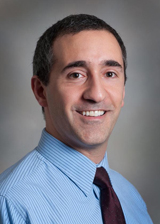 |
| University of Pittsburgh's Dr. Walid Gellad |
The Physician Payments Sunshine Act was meant to shine a light on pharma's payments to doctors, boosting transparency and potentially reducing unsavory business practices. But the act leaves out a big chunk of prescribers: nurse practitioners and physician assistants (PAs).
As NPR reports, nurse practitioners and PAs play an increasingly large role in healthcare, taking on many of the same tasks as doctors. PAs and nurses wrote about 10% of the nearly 1.4 billion prescriptions in Medicare's prescription drug program in 2013, according to a ProPublica analysis cited by NPR. The two groups wrote 15% of all scripts nationwide during the first 5 months of the same year, an IMS Health study notes.
While pharma's relationships with doctors have historically drawn the most attention, nurses' interactions with the industry have "as much relevance," Dr. Walid Gellad, co-director of the University of Pittsburgh's Center for Pharmaceutical Policy and Prescribing, told the news outlet. "If the purpose of the act is to shine a light on the relationship between industry and the healthcare sector, then you've left out an important component of that sector," he said.
When the Sunshine Act was drafted, nursing groups weren't covered by the law and thus weren't a part of policy discussions, Allan Coukell, senior director for health programs at the Pew Charitable Trusts, told NPR. But just because that's how the system worked in the past doesn't mean it should continue in the same vein, he added.
"(T)o the extent that a lot of prescribing now is done by health professionals who aren't physicians, and a lot of marketing is directed at them, they ideally should also be part of the disclosure," Coukell said (as quoted by NPR).
Meanwhile, the industry has slowly begun to change its tune when it comes to interactions with healthcare providers. In 2013, GlaxoSmithKline ($GSK) CEO Andrew Witty pledged to end doctor payments by 2016 to give the company's image a much-needed boost. While the company has yet to make big moves in that department, GSK plans to roll out a new suite of services by 2016 to replace paid speakers, loosening its ties with doctors. "We expect overall payments to continue decreasing as we continue to implement our new approach to working with healthcare professionals," company spokeswoman Sarah Alspach told Bloomberg last month.
- read the NPR story